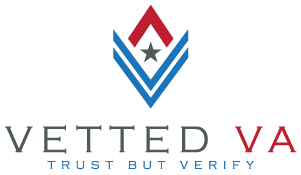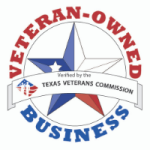A post within our Vetted VA Facebook Group recently outlined this scenario –
I understand that it is valuable to shop around for lenders. My question is more geared toward finding lenders to work with your particular circumstance. In my case, credit and such is fine but I have an employment gap. So I would be also looking for a lender that could figure out if/how to use my current income.
My questions are: if lenders insist on doing a credit pull before answering basic income questions, that will create multiple inquiries as if I were rate shopping anyway. So if I ask five different lenders if they are able to accept my income, all five lenders run the reports, I have five inquiries, hopefully within the window of counting as one credit score hit.But, if I understand correctly, those things like I’ve mentioned (income gaps and qualifications) don’t often come out until underwriting? When extra documents are needed (w2s and letters of explanation, so forth). By then I am well past “shopping” though, right? So I could easily get a preapproval by my disability pay plus income and credit scores on the surface (this has been the case with online soft pull mortgage places already) but potentially face denial once it has gotten as far as underwriting?
So in the instance of something like this, how do you rate shop? Do you let multiple lenders all get to the point of starting underwriting and hope one pass?
Employment Gaps:
- verify prior employment plus present employment covering a total of 2 years,
- provide an explanation of why 2 years of employment could not be verified,
- compare any different types of employment verifications obtained (such as, Verification of Employment (VOE), pay stubs, and tax returns for consistency), and
- clarify any substantial differences in the data that would have a bearing on the qualification of the applicant” (pg 4-7, https:/
/ www. benefits. va. gov/ WARMS/ docs/ admin26/ pamphlet/ pam26_7/ ch04. pdf).
Credit Checks:
- You work with a lender to get preapproved and feel good about the Loan Estimate they are quoting. Your credit HAS been pulled by that point.
- You begin shopping.
- You find a house that triggers the 6th thing needed in the application for the TRID Rule (TRID stands for Truth in Lending Act and Real Estate Settlement Procedures Act Integrated Disclosure Rule). At that time the lender has to act within three business days to get you disclosures including Loan Estimates, etc. You can take that info and “shop” it against other lenders by saying: “Here’s my credit report pulled recently, and here’s my info and current Loan Estimate, and I would like to see where you match up here.” They should give you an LE which you can compare side by side. Here is the CFPB’s guide on Loan Estimates.
- Then you know who you want to work with and can move forward. Would take maybe 48 hours to get this all done if you didn’t try to start on Sunday.
Overall the shopping process WILL be stressful, especially if you’re a private person because your financial life will be reviewed over and over. That can be a bit disconcerting for people. BUT shopping your mortgage application is extremely important if you wish to find the right mortgage equation for you.





